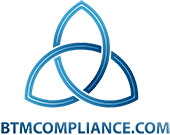As you may have heard, FinCEN issued a notice of proposed rule making — they gave a whole 15 days for comments — and propose to make Bitcoin and other digital currencies fall under the definition of monetary instrument. This means extra reporting for Banks and Money Service Businesses (MSBs). If the rule goes through, MSBs will need to keep a monetary instrument log, recording any transactions valued between $3,000 — $10,000.
The Log needs to include:
1. Type of instrument that was purchased (Indicate Bitcoin, Eth, Doge, etc.)
2. Date of purchase
3. Serial # on Monetary Instrument — (this would likely be the bitcoin transaction hash information)
4. Amount of purchase
5. Name of purchaser
6. Account Number of purchaser (if applicable)
7. Driver’s License # of purchaser
8. State of Driver’s License Issuance
9. OFAC check
10. Social Security #, TIN, or Alien ID #
11. Date of Birth
12. Address (Can’t be a PO Box)
Additionally, should this rule go through, Banks and MSBs will be required file a Currency Transaction Report (CTR) on any transactions involving Bitcoin or other digital assets worth over $10,000 in 24 hours. Previously, CTRs were only required for cash transactions.
If it passes, all MSBs will likely need to update their AML Policies in order to comply. My team and I will be here to help you through the process.
We are planning to submit comments against this rule, and it would strengthen the case if we could collaborate with some MSBs who will be substantially impacted by this proposed rule. FinCEN has requested comments centered on the costs of implementing the rule, so please consider:
- Cost of collecting SSN at $3,000 level — will you lose customers?
- Cost of reporting — filling out the Monetary Instrument Logs and CTRs — say they take 30 minutes each, how many will you have a month, and how much do you pay someone to create them?
- Cost of data storage — you must maintain these records safely for five years — does this require any additional technology costs?
- Technology constraints — I’m still not sure how MSBs are supposed to know the difference between whether they are sending to a hosted or unhosted wallet — does a Coinbase wallet have a different number sequence than a Trezor? If so, how do you identify this? Or will you now be required to have a blockchain monitoring program in place that can alert you if a wallet is unhosted? What will this cost?
I did a segment on the Tone Vays Trading Bitcoin show about this proposed rule, link is below.
https://www.youtube.com/watch?v=rmz6nG0C578&ab_channel=ToneVays
This is an article by Sasha Hodder originally published on https://sashahodler.medium.com/fincens-proposed-rule-to-make-bitcoin-a-monetary-instrument-4faa63aeecd7 .
Opinions expressed in the article are her own and do not necessarily reflect those of BTM Compliance, LLC.
Sasha Hodder is an attorney with DLT Law Group and teaches a Continuing Legal Education course titled Proof of Law. She is a member of the Tone Vays Bitcoin Law Review Cast and hosts her own Podcast, the HodlCast.


